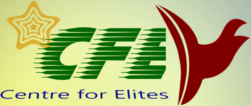COURSE AIM
To introduce students to the field of Curriculum Development Studies
COURSE OBJECTIVES:
At the end of the course, students should be able to:
- To acquaint students with the nature and types of curriculum.
- To acquaint students with the context of curriculum development and some Innovative Curriculum Models.
- To familiarize students with Designing of Curriculum.
- To give practical experience in Evaluating, Designing and Reviewing Curriculum.
COURSE CONTENT:
Curriculum conception
Meaning and Nature,
types of Curricula,
Syllabus and Text books -their interrelationship.
Issues and problems of existing curriculum.
Curriculum Construction, Curriculum Development and Curriculum Designing
Concepts and differences
Determinants and motives of Curriculum Development.
Different Curriculum Models-open university, Open School, etc.
- Steps of Designing Different Curriculum.
- Selection
- Gradation and Organisation of Curriculum.
- Development and Implementation of Curriculum.
- Enrichment of Curriculum.
- Application of Curriculum Development Principles
- Definitions of Curriculum Implementation and related concepts
- Factors affecting Curriculum implementation
- Curriculum Management
- Quality Control
- Evaluation of B.Ed. Curriculum
- Designing a Curriculum in a given condition
- Reviewing of Syllabus/Books
- CURRICULUM EVALUATION
- The nature and purpose of curriculum evaluation
- Evaluation of curriculum materials
- Evaluation of teaching effectiveness
- Evaluation of school climate/environment
METHODS OF TEACHING
- 3 Lectures hours per week
- 1Tutorials hour per week
ASSESSMENT
(a) Continuous assessment……………………………… 50%
(b) 2 assignments……………………………………… 20%
(c) 3 tests……………………………………………… 30%
(d) .Final exam………………………………………………………50%
TOTAL 100%
PRESCRIBED READINGS
Ashcroft, Kate and Palacio, David: The Primary Teacher’s Guide to the New National Curriculum. London: Flamer Press, 1995.
Doll, Ronald C.: Curriculum Improvement – Decision Making and Process. London; Allyn and Bacon, 1996.
Eccles tone, Kathryn: How to Assess the Vocational Curriculum. London: Kogan Page Ltd. 1996.
Hendricks, Joanne: Total Learning Developmental Curriculum for the Young Child. New York: Maxwell McMillan International, 1994.
Hooper, R.: The Curriculum Context, Design and Development. The Chaucer Press Ltd., Great Britain, 1977.
Kaushik, S.L.: Shikshakram Vikas. Rajasthan Granth Academy. Jaipur, 1977.
Kelly, A.V.: The Curriculum – Theory and Practices. Harper and Row Publishers, London, 1982.
Kerr, J.E. (Ed.): Changing the Curriculum. University of London Press Ltd., London, 1970.
Lawton, D.: Class, Culture and the Curriculum. Rouletdge and Kegan Paul Ltd., London, 1975.
Lowy, A. (Ed.): Handbook of Curriculum Evaluation. International Institute for Educational Planning, New York, 1977.
Lowy, A.: The International Encyclopaedia of Curriculum. New York: Pergamum Press, 1991.
RECOMMENDED READINGS
Mamidi, M.R. and Ravishankar: Curriculum Development and Educational Technology, Sterling Publishers Pvt. Ltd., New Delhi, 1983.
Nichols, S.H. and Nichols, A.: Developing Curriculum. George Allen and Unwin, Boston, London, 1976.
Oriosky, D.E. and Smith, B.D.: Curriculum Development – Issues and Insights. Rand McNally College Publishing Company, USA, 1976.
Prasad, Janardan & Kaushik, V.K. Advanced Curriculum Construction. New Delhi: Kanishka Publishers, 1997.
Richmond, K.W.: The School Curriculum. Methuen and Co. Ltd., London. 1973.
Saylor, J.G. and Alexander, W.H.: Curriculum, Planning for Modern Schools. London: Holt, Rinehart and Winston, Inc., 1966.
Wiles, Jon. & Bondi, Joseph C.: Curriculum Development -A Guide to Practice. London: Charles E. Merrill Publishing Co., 1984.
En savoir plus sur Centre for Elites
Subscribe to get the latest posts sent to your email.
